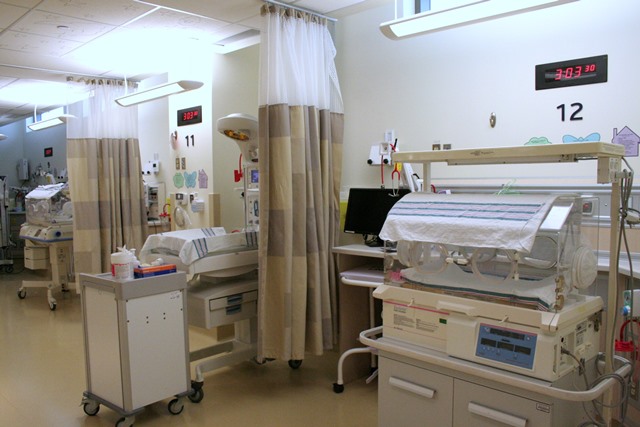By Peri Elmokadem
Patients visit hospitals to get better, and health care facilities do everything they can to deliver on that expectation. They adopt medical best practices and acquire state-of-the-art devices and technologies to ensure the best quality of care for their patients. However, what is often a challenge to institutions is ensuring that patients being treated do not contract infections from other patients, visitors or even health-care workers in the facility.
In February and March of 2015, #Markham Stouffville Hospital’s (MSH) Infection Prevention and Control (IPAC) team found evidence of Extended-Spectrum Beta-Lactamase (ESBL) and Serratia transmission in the Neonatal Intensive Care Unit (#NICU). In the process of managing this cluster, a few challenges were brought to the surface related to routine cleaning of hospital equipment, such as human error, the inability to see pathogens with the naked-eye and the time and logistical constraints imposed on the Environmental Services department by current hospital protocols—all of which can lead to increased risk of infection and potential outbreaks.
Every year, more than 200,000 patients contract a healthcare-associated infection (HAI) while receiving healthcare in Canada. “This challenges the basic purpose of caring for patients in a health care facility,” says Anson Kendall, IPAC Manager. “Not only does it cause more grief for patients and their families, but it also costs hospitals more resources to treat preventable HAIs. It’s important to reduce the risk of cross contamination to help break the cycle of infection transmission in health-care facilities.”
To address the need for advanced cleaning of shared patient equipment, MSH acquired and implemented the Nocospray© solution into its disinfection process — a high-capacity, low-cost, portable piece of equipment that helps to prevent the spread of diseases and deadly pathogens common in hospitals and health care settings.
This small portable device applies a dry ionized hydrogen peroxide and colloidal silver solution (tested and reviewed by Health Canada) to commonly used hospital equipment. When used as indicated, this system can disinfect all hard surfaces in an enclosed area. “This machine’s ability to act independently of human biases to disinfect areas that are not accessible to staff makes it practical and effective for health-care environments where time, space and resources are limited,” says Yves Crehore, Senior #Infection Control Practitioner.
MSH’s Maternal Child Services, IPAC and Environmental Services departments initiated an implementation and review of Nocospray© on NICU equipment. To test the results, IPAC plated NICU equipment before and after applying the Nocospray© solution to observe the presence and reduction of viruses, bacteria and fungal spores. After an incubation period of seven days, the agar plates were observed and compared for results (see figure

The implementation of the technology into MSH’s Environmental Services program has demonstrated efficacy against a broad range of infectious agents and has significantly reduced growth on various surfaces, including porous and textured materials, which can be difficult to clean manually. “It would require 30 hours of manpower to reduce the microbial load of these same NICU equipment pieces down to this level of disinfection,” says Mike Cabral, Manager of Support Services. “This effective method of sterilizing to reduce risks of HAIs from mobile and complex shared equipment among patients saves MSH time and money while yielding exceedingly better infection control outcomes and higher standards of care for patients in our hospital.”
Integrated with MSH’s current Environmental Services practice, this technology has proven to offer the hospital an effective, cost efficient, easy-to-use solution that eases the time constraints placed on staff. But ultimately, this solution enhances patient-care and contributes to MSH’s number one goal: to deliver safe, high-quality care to every patient who enters the hospital.
To learn more about this initiative, email myhospital@msh.on.ca.
Follow @MSHospital and @MSHIPAC on Twitter!
Peri Elmokadem works in communications at Markham Stouffville Hospital.




